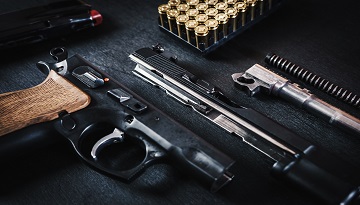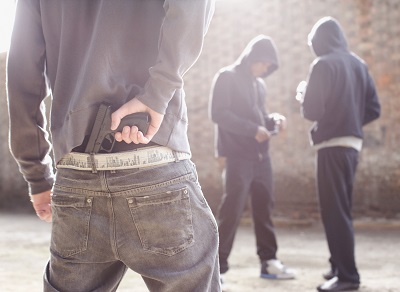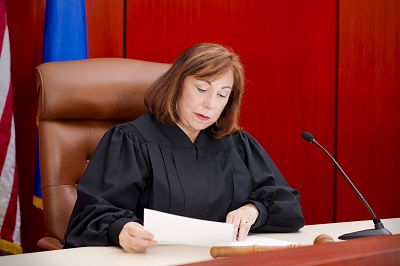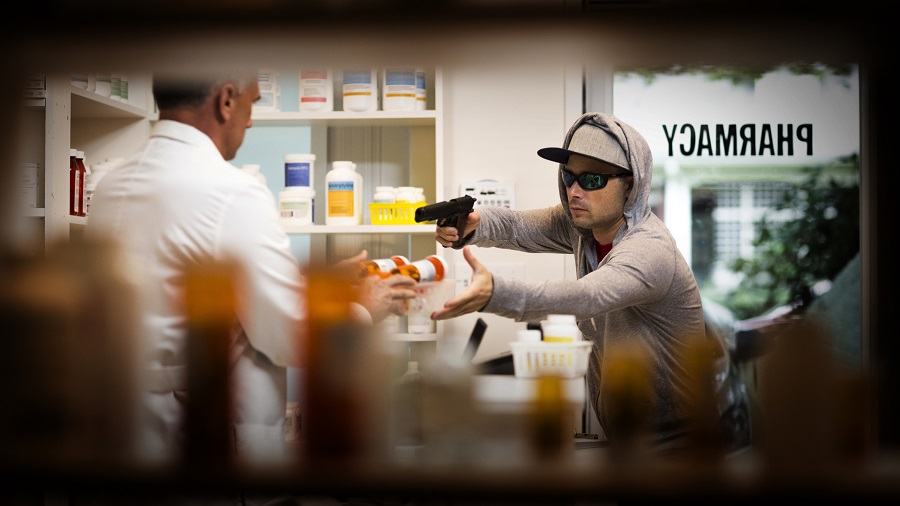Firearm & Weapons Offence
 Prosecutors aggressively pursue weapon and gun crime charges. If you have been arrested or accused of committing a crime involving a weapon or firearm, it is important to get experienced legal counsel to protect your legal rights. Currie Law is well-versed in the criminal laws that regulate weapon use and possession, and keep up to date on this ever changing area of the law. We use this knowledge to defend clients who are facing weapon and gun crime charges. We handle a wide range of weapons cases, including defence against charges of:
Prosecutors aggressively pursue weapon and gun crime charges. If you have been arrested or accused of committing a crime involving a weapon or firearm, it is important to get experienced legal counsel to protect your legal rights. Currie Law is well-versed in the criminal laws that regulate weapon use and possession, and keep up to date on this ever changing area of the law. We use this knowledge to defend clients who are facing weapon and gun crime charges. We handle a wide range of weapons cases, including defence against charges of:
- Being in possession of a firearm
- Unlawfully discharging a firearm
- Carrying an illegal and loaded firearm inside a vehicle
- Unlawful sale of a firearm
- Possession or sale of other illegal weapons such as switchblade knives, brass knuckles and martial arts weapon
What is a Weapon?
The term “weapon” is defined in section 2 of the Criminal Code as follows:
“weapon” means anything used, designed to be used or intended for use;
(a) in causing death or injury to any person, or
(b) for the purpose of threatening or intimidating any person
and,
without restricting the generality of the foregoing, includes a firearm;
Whether or not an object will be considered to be a weapon by the Court may depend upon the design, or intended use of the object. Weapons might include: knives, baseball bats, and broken beer bottles. The Courts have also found unloaded BB guns to be weapons in certain circumstances. Because it is necessary to examine the intended use of an object, things that would not ordinary be considered a weapon, such as a chair, might become one if it is used to injure someone.
What are Prohibited or Restricted Firearms and Weapons? The Criminal Code uses different language address both weapons and firearms. The Criminal Code addresses:
- Prohibited Firearms
- Restricted Firearms
- Prohibited Weapons
- Restricted Weapons
 Prohibited firearms consist of handguns of certain barrel lengths, as well as those that are prescribed as prohibited firearms in the regulations. The detailed regulations under the Criminal Code list various types of handguns and automatic weapons.
Prohibited firearms consist of handguns of certain barrel lengths, as well as those that are prescribed as prohibited firearms in the regulations. The detailed regulations under the Criminal Code list various types of handguns and automatic weapons.
Restricted firearms include all handguns that are not overtly prohibited (often used at sport shooting competitions and clubs), certain guns with specified barrel lengths, and also a list of guns listed as restricted firearms in the regulations.
Under the Criminal Code, weapons are to be distinguished from firearms.
Restricted weapons consists of any weapon, other than a firearm that is prescribed as such.
Prohibited weapons include knives that have blades that open automatically, by way of a spring etc. (switch blades), as well as any weapons that are specifically prescribed as being a prohibited weapon.
It is illegal in Canada to possess a weapon for any purpose deemed dangerous to the public’s peace.
As with any criminal offence, the penalties upon conviction of a weapons offence depend heavily on the circumstances and presence of any aggravating factors surrounding the offence. It also depends upon whether the mandatory minimum sentence provisions in the Criminal Code apply. There are a variety of weapons offences, and many offences – particularly firearm offences – carry minimum terms of imprisonment. The penalties if you are convicted of one of these crimes can have a devastating impact on your future.
There are some effective common defences to a firearm offence or other weapons offence, which is why it’s so important you hire an experienced criminal lawyer.
Remember, just because you are charged doesn’t mean you’ll be convicted.
We’ve provided some general information about weapons offences below. If you are facing firearm or weapons charges, please contact our office today for a consultation.
What Constitutes a “Weapon”?
According to Section 2 of the Criminal Code, a weapon is any object used, designed to be used, or intended to be used to threaten or intimidate a person, or to cause injury or death to a person. This broad definition may include household items such as butter knives if their purpose is to threaten, intimidate, or cause bodily harm or death to another person. Many objects qualify as a weapon – but only if you intend to use it as such.
Some items may or may not meet the definition depending on the circumstances of the offence, like hunting knives or pocket knives.
There are some items that always qualify as weapons under the law, such as firearms, brass knuckles, and crossbows.
Other items are illegal to possess at all, such as a firearm without the proper license and certain types of knives, such as switchblades.
Types of Weapons Offences
Weapons Dangerous:
According to Section 88 of the Criminal Code, the possession of a weapon for a purpose dangerous to the public’s peace is illegal. What is Dangerous to the Public’s Peace? The Criminal Code defines makes it illegal to carry a weapon with a purpose “dangerous to the public’s peace.” This broad term includes any purpose which disrupts the “normal state of society” or disturbs “the general peace and order or the realm as provided for by law.” This definition is quite broad, leaving room for interpretation and potential defence to allegations against an accused individual.
Use Offences:
Any use of a weapon, even if it is legally possessed and carried, may result in criminal charges. This may include pointing a firearm or careless use of a firearm.
Concealed Carry:
According to Section 90 of the Criminal Code, it is illegal to carry a concealed weapon unless you have authorization under the Firearms Act to do so.
Possesion Offences:
Possessing an illegal weapon or device, including possession of a loaded prohibited firearm or possession of a concealed knife, can result in criminal charges.
Common Defences to a Firearm Offence
Many gun and weapons charges arise as a result of the police questioning pedestrians in high crime areas, traffic stops, and in the execution of search warrants in their criminal investigations.
In some circumstances it may be possible to challenge the legality of a search warrant [see search and seizure], police stop, detention, or police questioning, and seek the exclusion of the firearm or weapon from evidence at trial.
In appropriate cases, defence counsel can argue that the evidence should be excluded under s. 24(2) of the Canadian Charter of Rights and Freedoms, in cases where there has been a breach of the Charter rights of the accused. Some Charter rights that come into play during an arrest, detention, or the execution of a search warrant include:

- Section 7: the right to life, liberty and security of the person
- Section 8: the right to be secure against unreasonable search or seizure
- Section 9: the right against arbitrary arrest or detention
- Section 10(a): the right to be promptly informed of the reason for arrest or detention
- Section 10(b): the right to counsel without delay
There are a few common defences to a firearm offence that may successfully be used in the appropriate circumstances resulting in a successful argument that you should not be found guilty or to get your sentence reduced.
Intoxication
In order to convict an offender of a firearm or other weapons offence, the Crown must prove beyond reasonable doubt that the accused possessed the weapon with the intent of disturbing the peace of committing a crime. In some cases, intoxication may negate the accused’s intent to commit an offence.
Self-Defence:
This area of the law is murky, as various courts have ruled in contradictory ways on possessing a weapon for the purpose of self-defence. Ultimately, it’s up to your lawyer to present a case that your possession of a weapon for self-defence, and the judge to determine the validity of your case.
Unpremeditated Use:
If the weapon in question is otherwise possessed lawfully, the accused may not be found guilty of possession for a dangerous purpose, even if they later used it as a weapon.
Illegal Search:
In many cases it’s possible to argue that the evidence facing the accused was obtained during an illegal search, interrogation, or stop by police officers. This may lead the court to exclude the evidence against the accused. See the search and seizure link in this website.
Penalties for Weapon Possession
As with any criminal offence, the penalties will vary based on the judge’s discretion and will depend on the circumstances. Generally, possession of a weapon dangerous the public’s peace may result in a maximum of 6 months in jail if the Crown proceeds by summary conviction, or up to 10 years if the Crown proceeds by indictment.
Defence for Firearm and Weapons Offences
Carrying or using a weapon can be a criminal offence in itself or can enhance the seriousness of other charges. Firearms charges carry the strong possibility of jail time. Possessing a firearm can mean a minimum sentence of three years in prison. If you are charged with other crimes, such as robbery or murder in which a firearm was used, the minimum sentences are even more severe.
Mandatory Minimums
In many cases, gun charges carry mandatory minimum jail sentences. For example, a robbery with a deadly weapon involves a minimum four-year jail sentence. It is much more difficult to obtain a reasonable bail or, in some cases, any bail at all, if your offence involved a gun or other weapon. Without an effective lawyer to negotiate on your behalf, you may be stuck in jail for months awaiting a trial.
Facing Criminal Charges?
If you have been charged with a criminal offence, Maureen Currie will vigorously defend you. Maureen Currie is an experienced criminal lawyer, who has represented individuals charged with criminal offences in Milton, Mississauga, Hamilton, Georgetown, Burlington, Guelph, the Niagara Region and throughout Ontario.
A criminal record can have lifelong ramifications.










